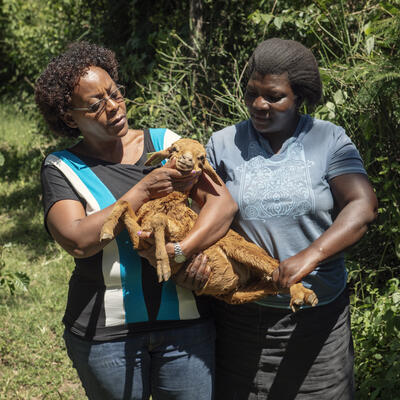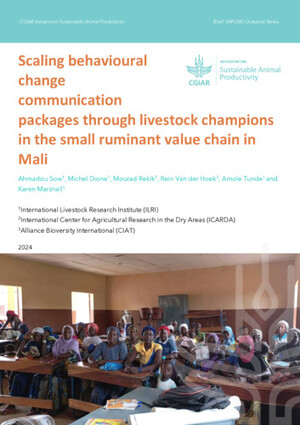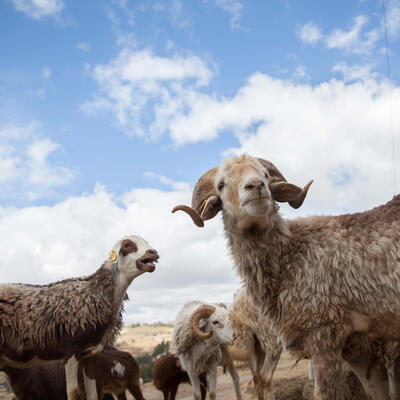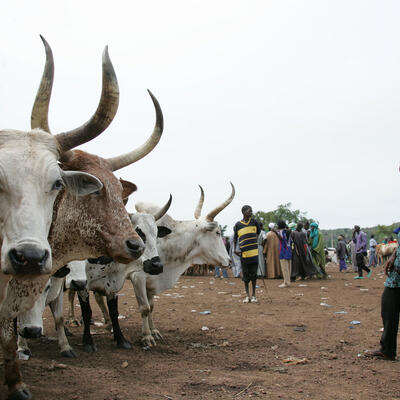
From the field to academia: Ethiopian livestock breeders advocate for reform of university curricula
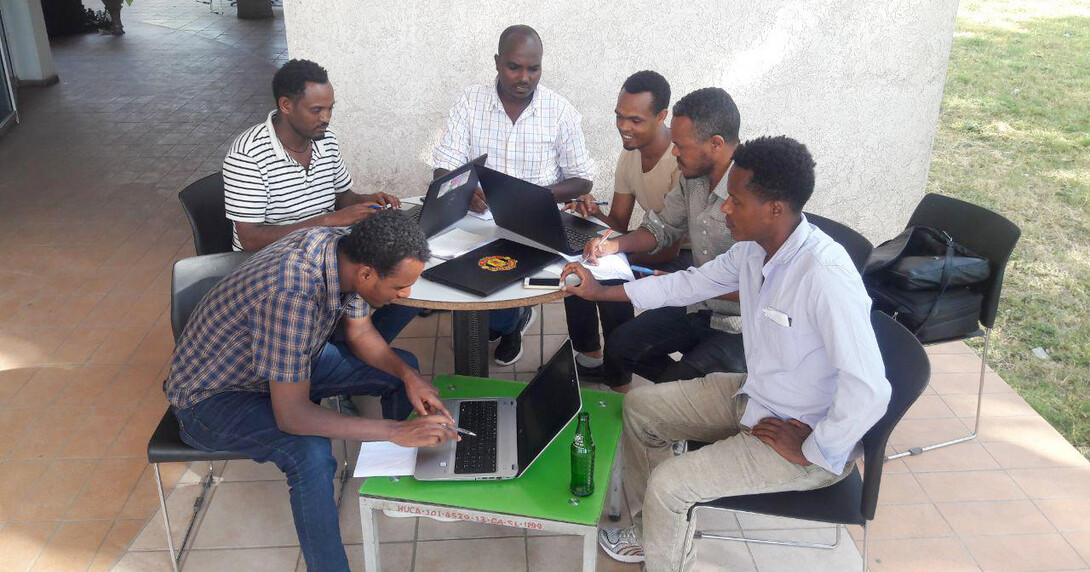
Photo provided by M. Gobeze
Mulatu Gobeze (bottom left) in a study group with fellow students all working towards their MSc in animal breeding and genetics. They are set to graduate in September 2020.

Photo Z. Sewunet/ILRI
Breeding sheep and goats for better productivity, combined with proper flock management and feed, is an effective way for many rural Ethiopian farmers to increase their household incomes.
Kassahun Bekana chose to study community-based breeding programs in his home district of Horro because he was passionate about helping to change farmers’ lives.
“To have enough income to educate children, to be food secure in rural areas of Ethiopia, farmers must rear small ruminants. Even though there have been many efforts to improve livestock, it has not been targeted to farmers’ interests and so production and productivity is still too low,” he says.
Bekana was raised by a single mother and never got to finish secondary school due to financial difficulties. But his is a story of incredible perseverance. After completing vocational training in animal science, he was able to get a job as a development agent at the Oromia Agricultural Bureau in the Horro district.
“I worked there for three years and used the salary granted by my office to support myself to study a bachelors degree in animal science at Ambo University.”
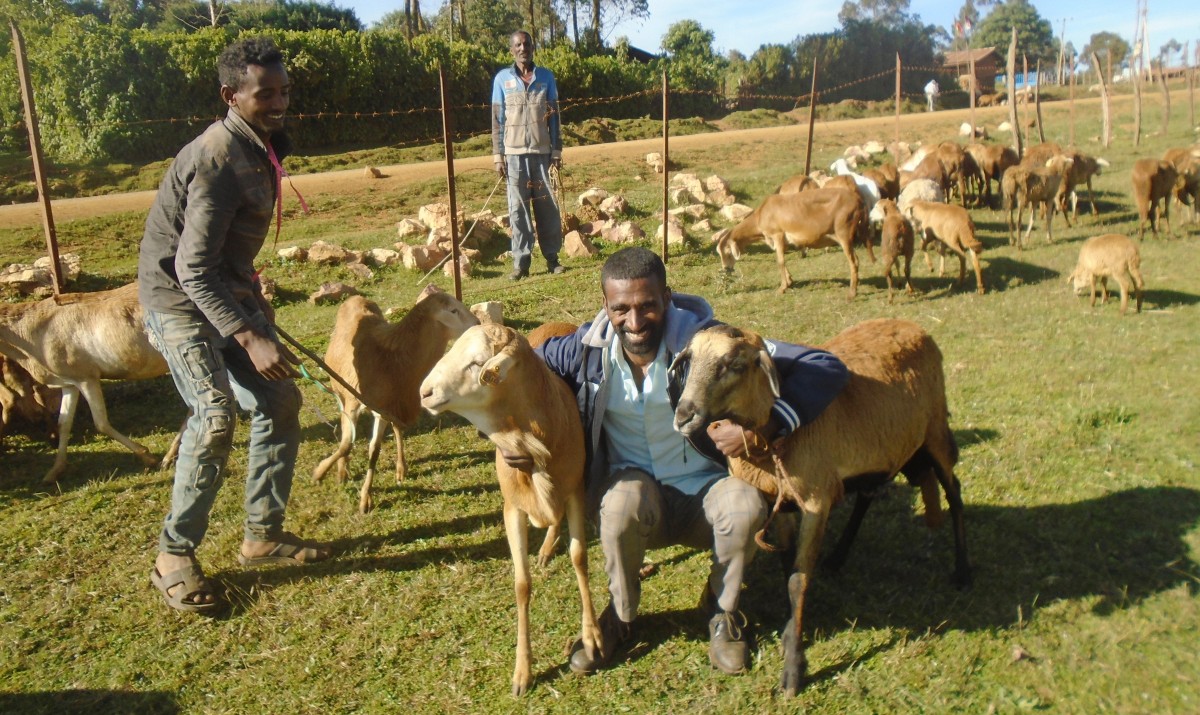
He was then offered a role as a graduate assistant at Ambo University, which enabled him to study his masters in animal genetics and breeding at Wollega University.
Under the tutelage of Duguma, Bekana's master’s thesis compared the performance of sheep in a community-based breeding program in Horro district with the same breed being kept on a station at a nearby research center.
“We found that sheep in the community-based breeding program performed much better than the sheep on the station. It really opened my eyes to the benefits of the approach,” Bekana says.
After graduating from his masters, he was offered a position as a lecturer at Ambo University, where he got the chance to teach animal breeding to undergraduate students.
“Even though there is no curriculum for teaching community-based breeding programs, I thought it was important to share my experience of it,” he says.
And it’s a role he takes very seriously.
“When you’re in the lecture theatre it can be easy to forget that the students sitting in front of you will one day be employed as experts, teaching farmers what they have learnt while at university,” he says.
“If we don’t teach the students adequately then it has real-world consequences - they are going to apply a technology in the wrong way. It’s incumbent on lecturers like me to teach these students about approaches we know work on the ground, like community-based breeding programs.”

Photo A. Habtamu/ILRI
Greater availability of improved flocks of sheep and goats through the community-based breeding programs have significantly raised the incomes of participating families and communities.







